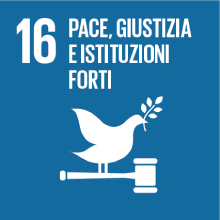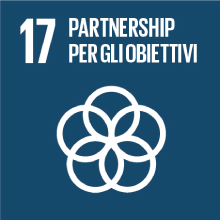BRITISH HISTORY
- Anno accademico
- 2024/2025 Programmi anni precedenti
- Titolo corso in inglese
- BRITISH HISTORY
- Codice insegnamento
- LM6580 (AF:529192 AR:291576)
- Modalità
- Blended (in presenza e online)
- Crediti formativi universitari
- 6
- Livello laurea
- Laurea magistrale (DM270)
- Settore scientifico disciplinare
- M-STO/02
- Periodo
- II Semestre
- Anno corso
- 1
- Spazio Moodle
- Link allo spazio del corso
Inquadramento dell'insegnamento nel percorso del corso di studio
Objectives:
-Provide students with a clear historical framework to understand British society and culture
-Analyze themes of British History in a multidisciplinary perspective able to encompass political, economic and cultural factors
-Analyze the key-events of British History and their historical development during the Early Modern Age
Risultati di apprendimento attesi
- Understand the general framework of British History
- Understand the multidisciplinary character of History through the thematic cases presented
2. Ability of applying knowledge and understanding
- Understand the general framework of British History> Ability of discussing subjects related to the field in a specialized language and according to an historical methodology and to explain them to classmates
- Understand the multidisciplinary character of History through the thematic cases presented> Ability of applying the historical methodology through the cases analyzed also to other fields of study (e.g. final dissertation)
3. Judgement abilities
- Ability of connecting the facts and data learnt during lessons
- Ability of organizing the course materials (lessons and readings) in a coherent interpretation
- Ability of interpreting and commenting the weekly reading materials
4. Communicative abilities
- Ability of presenting the issues related to the field of study using specialized language
- Ability of presenting the knowledge acquired from lessons and readings in a coherent discourse
- Ability to gather data and to create learning supports (e.g. hand-out, ppt presentation) in order to present one own’s results during lessons and seminars
5. Learning abilities
- Ability of taking notes during lessons
- Ability of critically reading the assigned bibliography
- Ability of connected the knowledge acquired to nowadays issues
Prerequisiti
Students who realize they do not possess the requested basic knowledge can follow the class, but are kindly invited to catch up with the basics before taking the exam. They might refer to:
-Introduzione alla storia moderna, a cura di Marco Bellabarba, Vincenzo Lavenia, Bologna, Il Mulino, 2018
-The Oxford handbook of early modern european history, 1350-1750, edited by Hamish Scott, Oxford, Oxford University Press, 2015
-The Oxford handbook of the Atlantic world : c.1450-c.1850 / edited by Nicholas Canny and Philip Morgan, Oxford, Oxford University Press, 2011
Contenuti
-The Tudor age
-A focus on the Elizabethan Age
-Thomas More between reality, utopia, and fictions
-The Stuarts and the Revolution
-A focus on the freedom of speech
-The consolidation of Britain as a global power
-A focus on exploration and exploitation
-A focus on England VS France
-The Victorian age
-A focus on imperialism
-Global goods and consumerism
-Constitutionalism
-The British and the Mediterranean
-Royal celebrities
Testi di riferimento
1. their class notes
2. the slides and the materials available on Moodle
Suggested readings:
The Oxford History of Britain, chapters 5, 6, 7, 8
Linda Colley, The Gun, the Ship and the Pen : Warfare, Constitutions and the Making of the Modern World, London : Profile Books, 2021
Giulia Delogu, Mediterranean Reflections. Venice as Myth and Model (18th-19th centuries), Pavia-Como : Ibis, 2024
John Brewer and Roy Porter, (eds.), Consumption and the world of goods. London-New York : Routledge, 1993
Anya Zilberstein, A temperate empire : making climate change in early America, Oxford : Oxford University Press, 2019
Modalità di verifica dell'apprendimento
Exam: oral.
Number of questions and structure:
-if a student completes the activities, presents in class and submits the paper, they will receive a score between 0 and 3 and such score will be added, in case, to the grade achieved in the oral exam; the exam will consist of two questions, the first on their paper and the second on an issue explored during the course.
-if a students completes the activities and submits the paper without presentation, the exam will consist of two questions, the first on their paper and the second on an issue explored during the course.
-if a student doesn't submit the paper, the exam will consist of three questions.
Detailed description of the expected learning results.
Written paper+presentation: expected learning results 2.Ability of applying knowledge and understanding, 3.Judgement abilities and 4. Communicative abilities.
Final oral exam. The exam aims to assess the critical understanding of the contents discussed during the course and the individual reflection on the assigned materials. It will therefore consist of two/three questions. The approximate duration is 15-20 minutes: expected learning results 1.Knowledge and understanding, 3.Judgement abilities, 4. Communicative abilities, and 5.Learning abilities.
Regarding the grading, the exam will be marked on a scale ranging from 0 to 30. The minimum passing grade is 18. Honors ("lode") will be granted only for exceptional capacity of judgment and excellent knowledge of the topics under evaluation
Modalità di esame
Metodi didattici
Seminars
Primary source analysis
Case study analysis
Ppt presentations
Digital Humanities
Lingua di insegnamento
Altre informazioni
Students with disabilities can contact the Disability and Accessibility Office (disabilita@unive.it) to take advantage of the services available (e.g. alternative examination methods, readers, etc.).
Students interested in carrying out a master's degree thesis in Global History can contact the professor, after passing the exam, for the appropriate vademecum (by writing directly to giulia.delogu@unive.it) or they can meet to the professor in her office hours. A preliminary vademecum is available at the Notices section of the professor's webpage.
Obiettivi Agenda 2030 per lo sviluppo sostenibile
Questo insegnamento tratta argomenti connessi alla macroarea "Cooperazione internazionale" e concorre alla realizzazione dei relativi obiettivi ONU dell'Agenda 2030 per lo Sviluppo Sostenibile


